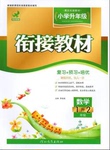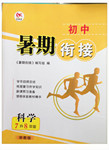题目内容
Some foreign schools have a special unit ________ a child who has done wrong goes and gets advice for his problems.
A. where B. when C. there D. whenever
A

练习册系列答案
 鹰派教辅衔接教材河北教育出版社系列答案
鹰派教辅衔接教材河北教育出版社系列答案 初中暑期衔接系列答案
初中暑期衔接系列答案
相关题目
Is this research center _________ you met some foreign guests last week?
|
A.that |
B.where |
C.which |
D.in which |
Some foreign cartoons for children have been banned on the ________ that they are too violent.
|
A.proof |
B.analysis |
C.opinion |
D.basis |